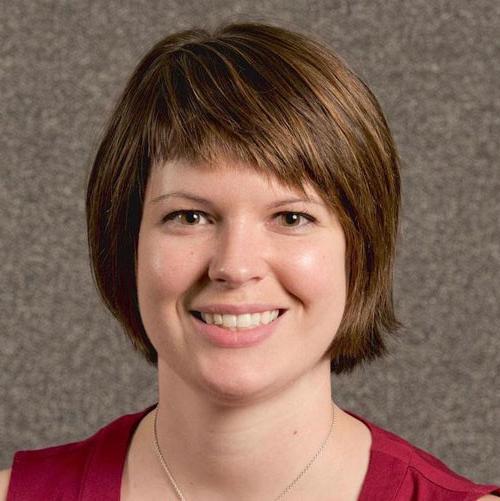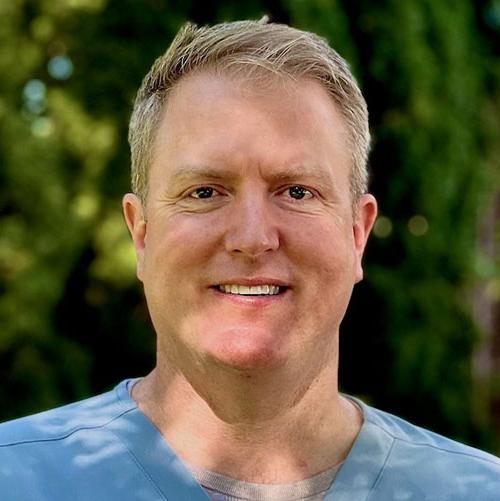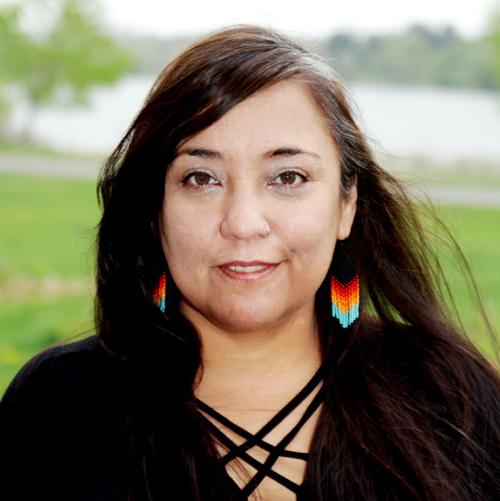About the Program
The Integrative Health Care (IHC) program provides a comprehensive understanding of health and wellness through evidence-based teaching and practices that combine the most recent scientific evidence with the oldest of healing traditions, such as botanical and ayurvedic medicines. Students examine the diverse factors that impinge on an individual’s health and well-being, which promotes growth, cultivates wisdom, and teaches discernment of existing paradigms in US Healthcare. Students receive a broad-based understanding of the principles of human health and disease, the theories underlying healing practices, and the scientific research methods needed to evaluate the latest techniques in this dynamic field.
The Integrative Health Care program offers a major, and a minor. The major is designed for students interested in working in the expanding complementary and alternative health care field. The minor is designed for students who recognize the increased emphasis on wellness in several professional fields and/or for health-conscious individuals who wish to establish a self-enhancement program. The minor can complement a major that is relevant to the student’s career goals.
Majors and minors that complement the IHC programs include, but are not limited to: Health Care Management, Nutrition, Aging Services Leadership, Public Health, Lifestyle Medicine, Men’s Health, Journalism, Spanish, Marketing, Human Services, Anthropology, Biology, and Chemistry.
IHC Student Spotlight
How overcoming cancer led Valeria Pernas to pursue a career in holistic medicine
She was diagnosed in her 20s. Now, she’ll graduate with a degree in Integrative Health Care, so she can help others navigate treatment.
“The Integrative Health Care Program is so diverse in how students learn in regards to health care,” Pernas said. Traditional core subjects such as Biology and Chemistry are combined with topics such as Ayurvedic medicine and herbalism. “The program gives you a wide perspective on how to approach health care in a holistic way.”
Pernas will receive MSU Denver’s prestigious Provost’s Award when she graduates in May 2024.
Read the Full Article
How will the IHC program impact you?
The baccalaureate Integrative Health Care (IHC) program graduate will be prepared to:
- Demonstrate an attitude of caring, flexibility, and self-confidence in a health care setting.
- Act in an ethical and legal manner in applying the leadership roles of collaborator, resource person, change agent, teacher, and advocate.
- Integrate a variety of communication skills, media techniques, and strategies effectively and appropriately to influence health.
- Assess health situations and recommend appropriate healing practices.
- Evaluate global health systems to identify social and health-care trends in order to anticipate the future of health care.
- Apply scientific method to health-care problems.
- Apply knowledge of natural science principles in a healing practice.
Career Opportunities
Earn a degree in Integrative Health Care, and you’ll be ready for a career in a variety of health care fields, from community health and health education to retail. These are some of the areas you could pursue with your B.S. in Integrative Health Care:
Alternative Medicine
- Acupuncture
- Anthropology
- Aromatherapy
- Ayurvedic medicine
- Chiropractic medicine
- Conventional medicine
- Traditional Chinese medicine
- Ethnobotany
- Herbal medicine
- Homeopathy
Traditional Medicine
- Wellness Coaching
- Naturopathy
- Nursing
- Occupational therapy
- Traditional Chinese medicine
- Osteopathic medicine
- Physical therapy
- Psychology
- Public health
- Social work
IHC prepares students for health care and beyond
 If you’re interested in becoming a health care practitioner, the bachelor’s degree program in Integrative Health Care at MSU Denver fulfills most graduate school requirements. MSU Denver graduates of the Integrative Health Care undergraduate degree program have been accepted into the following conventional and naturopathic medical programs:
If you’re interested in becoming a health care practitioner, the bachelor’s degree program in Integrative Health Care at MSU Denver fulfills most graduate school requirements. MSU Denver graduates of the Integrative Health Care undergraduate degree program have been accepted into the following conventional and naturopathic medical programs:
- Rocky Vista University College of Osteopathic Medicine
- Johns Hopkins School of Nursing
- MSU Denver School of Nursing
- Bastyr University
- National University of Natural Medicine
- Southwest College of Naturopathic Medicine
- University of Colorado School of Medicine
- National University of Health Sciences Chiropractic College
Contact Us to Learn More!

If you are interested in Integrative Health Care but have more questions, please contact us!
You can set up an advising appointment with Dr. Steve Rissman by emailing at [email protected] .
You can also request an advising appointment on our Academic Advising Webpage.
Integrative Health Care Major, B.S.
The Integrative Health Care Major requires the following courses and electives. In addition to the courses listed below, many courses will require prerequisite courses prior to registration.
Summary of Major Requirements
Required Core Courses: 33-34 Credits
Required Elective Courses: 12 Credits
Required Pathway Courses: 18 Credits
Total for Major: 63-64 Credits
See the major requirements in the catalog
Course Information
- HCM 3150 – Health Care Organization and Management Credits: 3
or
- HCM 3500 – Health Care Research Methods Credits: 3 *
- ITP 1000 – Health Career Foundations Credits: 3
- ITP 1500 – Dynamics of Health Credits: 3
- ITP 1700 – Medical Terminology Credits: 3
or
- ITP 3800 – Stress and Sleep: Impact on Health and Disease Credits: 3
- ITP 2500 – Complementary Medicine Credits: 3
- ITP 2700 – Holistic Dimensions of Wellness Credits: 3
- ITP 3000 – Men’s Health Credits: 3
- ITP 3200 – Ethics in Health Care Credits: 3
- ITP 3450 – Dynamics of Disease Credits: 3
or
- ITP 4600 – Clinical Pathophysiology Credits: 4 *
- ITP 3850 – Lifestyle Medicine Credits: 3
- ITP 3700 – Physiology of Aging Credits: 3 *
or
- ITP 4000 – Pediatric Holistic Health Credits: 3
or
- ITP 4100 – Women’s Holistic Health Credits: 3
*Courses with an asterisk (*) have additional prerequisites
- Choose at least 12 credits for any ITP prefix course or NUT 2040 – Introduction to Nutrition
Pathways: 18 credits
In addition to their major coursework, students in the IHC major need to complete a specialized pathway. Transfer students with an applied science associate degree do not need to complete a pathway. Pathway options include Complementary Medicine, Lifestyle Medicine, Men’s Health, and Wellness Coaching.
Complementary Medicine Pathway: 18 credits
Students must take the 6 courses in the Complementary Medicine Pathway unless they have been taken in the major, in which case they may replace them with any ITP prefix course.
- ITP 1600 – Herbal Medicine Credits: 3
- ITP 2500 – Complementary Medicine Credits: 3
- ITP 3800 – Stress and Sleep: Impact on Health and Disease Credits: 3
- ITP 4300 – Botanical Pharmacology Credits: 3
Choose 2 of the Following Courses:
- ITP 2720 – Cannabis as Medicine Credits: 3
- ITP 2800 – Health, Society, and the Environment Credits: 3
- ITP 3300 – Homeopathy Credits: 3
- ITP 3400 – Ayurveda Credits: 3
- ITP 3500 – Traditional Chinese Medicine Credits: 3
- ITP 3600 – Energy Medicine Credits: 3
Lifestyle Medicine Pathway: 18 credits
Students must take the 6 courses in the Lifestyle Medicine Pathway unless they have been taken in the major, in which case they may replace them with any ITP prefix course.
- ITP 2950 – Wellness Coaching I Credits: 3
- ITP 3800 – Stress and Sleep: Impact on Health and Disease Credits: 3
- ITP 3850 – Lifestyle Medicine Credits: 3
- ITP 4700 – Community Health Education and Lifestyle Medicine Credits: 3
- ITP 4800 – Lifestyle Medicine Across Gender and Lifespan Credits: 3
- ITP 4999 – Applied Learning with Lifestyle Medicine Credits: 3
Men’s Health Pathway: 18 credits
Students must take the 6 courses in the Men’s Health Pathway unless they have been taken in the major, in which case they may replace them with any ITP prefix course.
- ITP 2820 – Anger In Men: A Whole Approach Credits: 3
- ITP 3000 – Men’s Health Credits: 3
- or
- ITP 3800 – Stress and Sleep: Impact on Health and Disease Credits: 3
- ITP 3111 – Aging Warriors: Understanding the Health Issues of Aging Men Credits: 3
- ITP 3810 – Men Across Cultures Credits: 3
- ITP 3911 – Fathers and Health: A Global Perspective Credits: 3
- ITP 3850 – Lifestyle Medicine Credits: 3
- or
- ITP 4800 – Lifestyle Medicine Across Gender and Lifespan Credits: 3
Wellness Coaching Pathway: 18 credits
Students must take the 6 courses in the Wellness Coaching Pathway unless they have been taken in the major, in which case they may replace them with any ITP prefix course.
- ITP 2950 – Wellness Coaching I Credits: 3
- ITP 4400 – Wellness Coaching II Credits: 3
- ITP 3800 – Stress and Sleep: Impact on Health and Disease Credits: 3
- ITP 3850 – Lifestyle Medicine Credits: 3 ( if ITP 3850 taken in major than can use other ITP prefix course)
- ITP 4700 – Community Health Education and Lifestyle Medicine Credits: 3
- ITP 4950 – Community Coaching for Health Credits: 3
Integrative Health Care Minor
The Integrative Health Care Minor requires the following courses and electives. In addition to the courses listed below
Summary of Minor Requirements
Required Core Courses: 9 Credits
Required Elective Courses: 12 Credits
Total for Minor: 21 Credits
Course Information
- ITP 1500 – Dynamics of Health (Credits: 3)
- ITP 2500 – Complementary and Alternative Medical Therapies (Credits: 3)
- ITP 2700 – Holistic Health (Credits: 3)
Choose any 12 credits with the ITP prefix and/or the following:
HCM 3500 – Health Care Research Methods Credits: 3
NUT 2040 – Introduction to Nutrition Credits: 3
Accreditation
Academic Accreditation is an assurance of the quality of an academic program. The Higher Learning Commission (HLC) is an independent corporation that was founded in 1895 as one of six regional institutional accreditors in the United States. HLC accredits degree-granting post-secondary educational institutions in the North Central region, including Colorado and 18 other states. The mission of the HLC is to serve the common good by assuring and advancing the quality of higher learning. For more information, please visit the Higher Learning Commission.



Need Assistance?
Visit our Department Support Portal.Accepting applications, apply now!
Apply nowRequest information about our program
Request more informationCall or Email Us
303-615-1200
[email protected]
Visit Us
Central Classroom Building 220
1055 10th Street, Ste. 220, Denver, CO 80204
To get assistance, please visit our Department Support Portal.
Mailing Address
Department of Health Professions
Metropolitan State University of Denver
Campus Box 33, PO Box 173362
Denver, CO 80217-3362



